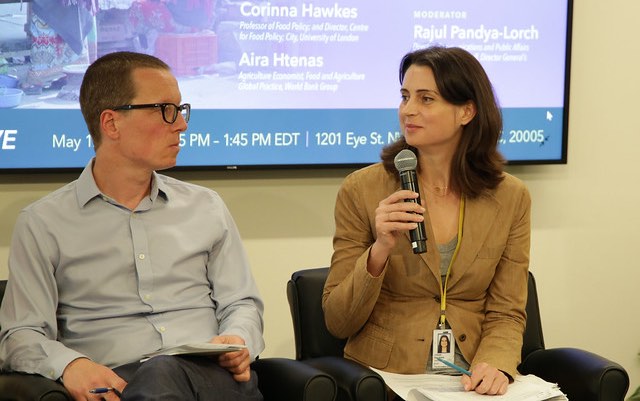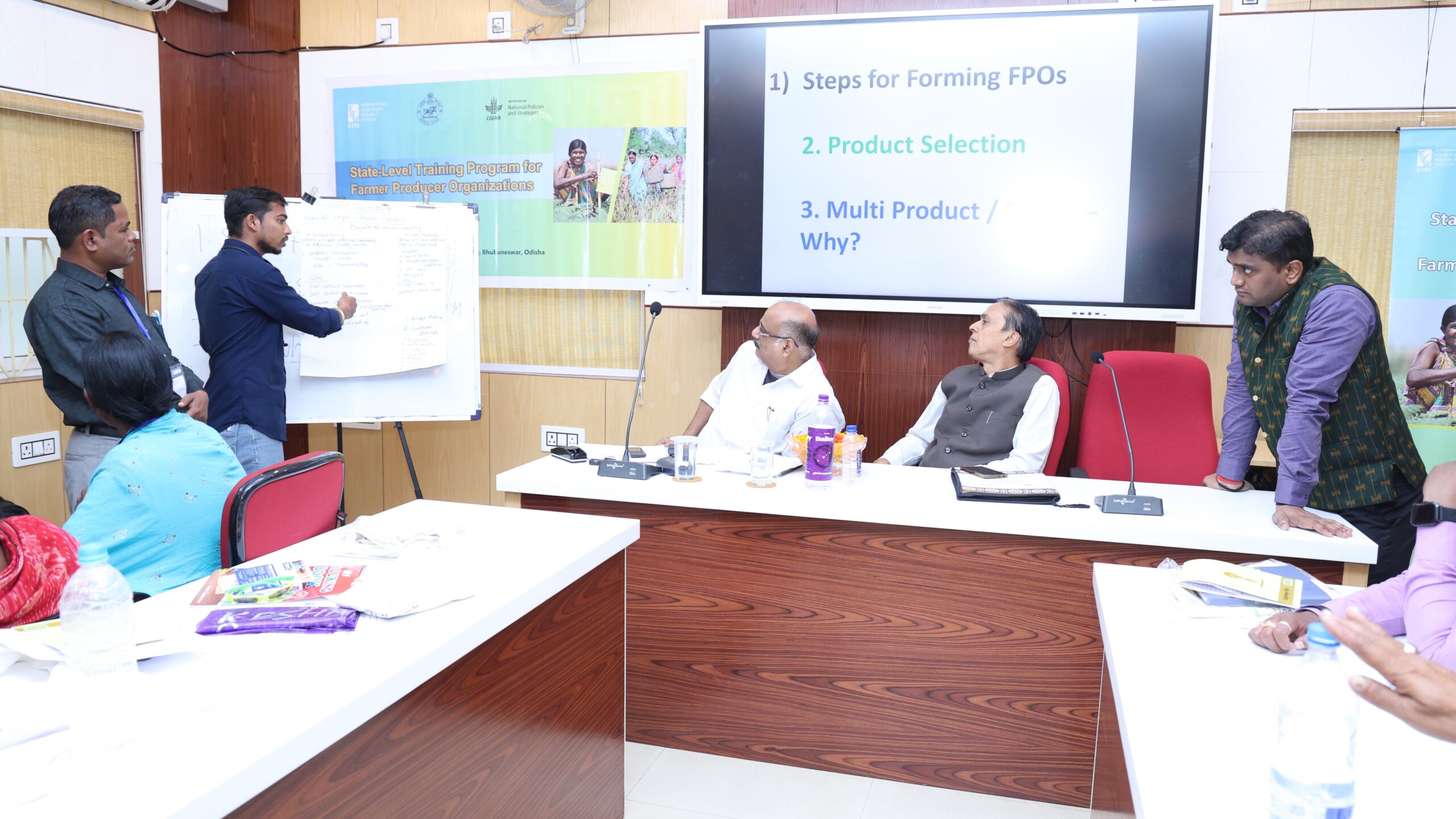The explosive growth of cities all over the world has led to major shifts in diets, especially in rapidly urbanizing low- and middle-income countries in Africa and Asia. As incomes rise in concert with urbanization, food consumption patterns often change to include more refined grains, animal sourced foods, sugars, and fats. As a result, urban areas—and particularly the urban poor—now face problems of both undernutrition and overnutrition, including overweight and obesity.
A new IFPRI research program, Urban Food Systems for Better Diets, Nutrition, and Health, will study this dynamic and how to address these issues. A May 17 special event outlined its efforts to build an evidence base for designing effective urban food systems policies for healthier diets and optimal nutrition among the urban poor.
“This nutrition transition has serious consequences,” said IFPRI Director General Shenggen Fan, adding that overnutrition has contributed to significant increases in noncommunicable diseases such as diabetes and heart disease.
“Poor diets are the key driver in premature mortality, debt, disability, and disease” said Marie Ruel, director of IFPRI’s Poverty, Health, and Nutrition Division. IFPRI is tackling this new research area because diet, nutrition and the poor are often left out of ongoing efforts by cities to improve quality of life, she said. Malnutrition in its various forms is heightened in urban areas, she said, and the main driver is poor quality diets.
IFPRI Senior Research Fellow Jef Leroy described how aggressive marketing of ultra-processed foods in urban areas, where people often do not have access to adequate cooking facilities and are short on time, leads to increased overconsumption. “To address these challenges of poor diets for people in urban areas, we need better evidence,” Leroy said. “The idea is to generate evidence that leads to better policies and programs that can improve the diets, the nutrition, and the health of the urban poor.”
IFPRI’s research is mostly geared toward rural agriculture, IFPRI Senior Research Fellow James Thurlow noted, arguing that the institute should engage more actively with urban food systems. There are many reasons, he said: Most rural populations live very close to cities; much of any national food system lies well beyond the farm, and the tail end of that food system is usually found in urban areas; and urban growth will transform food systems, creating new opportunities in rural areas and for people living in the broader urban economy.
“We know that informal food trade is a really critical source of food security and employment for the urban poor,” said IFPRI Senior Research Fellow Danielle Resnick. Governance of the urban informal food trade sector is key to efforts to ensure better nutrition and well-being, Resnick explained. Researchers are seeking to understand the institutional architecture of oversight of the informal food trade, she said—the range of taxes, fees, and levies that traders actually pay, and whether they get any services in return for that; what levels of capacity and coordination exist for enforcement of food safety; and the right to public space many of these vendors have in central business areas. Answering these questions, she concluded, will help this research program to understand points of entry into the policy process and ultimately have an impact.
Two external presenters also weighed in on the importance of this work and how they see it evolving. World Bank Agriculture Economist Aira Htenas pointed to findings from the bank’s 2017 report Food Systems for an Urbanizing World showing the significant role cities play in urban food production and consumption patterns. She recommended that the program remain flexible in its approaches, as the specific needs for support and assistance will vary by types of cities.
“It’s quite shocking how little evaluation there has been! There’s a need for consistent metrics and indicators,” said Corinna Hawkes, director of the Centre for Food Policy at City, University of London. She shared examples of five case studies conducted in cities ranging from Amsterdam to Belo Horizonte, Brazil, that are addressing different aspects of the urban food system, concluding that research and action are inadequate. Hawkes called for both quantitative assessments and qualitative, people centered approaches to studying the workings of urban food systems.
A lack of donor interest in urban food issues and in big data gathering exercises is a serious challenge that the program currently faces, Ruel said. Nevertheless, Fan concluded, “urbanization presents opportunities to improve nutrition and health for both urban and rural areas….and IFPRI has prioritized this program to provide evidence-based information and research on key topics in our rapidly changing world.”
Katarlah Taylor is an IFPRI Senior Events Specialist.







